CES 2025: Paintball-shooting surveillance cameras, shockwaving spoons & more Roundup of innovative gadgets showcased in Las Vegas
The Consumer Electronics Show (CES) is one of the world's largest and most influential technology trade shows held annually in Las Vegas, Nevada. Over 4,000 companies, ranging from tech start-ups to industry giants like Samsung, LG, Nvidia, Sony and Lenovo, present their latest innovations in consumer electronics and technology. This year's fair was held from January 7 to 11 and welcomed over 138,000 people. The use of AI in consumer devices was the focal point of most company’s presentations but robotics and transportation were vastly represented as well. From bi-directional vehicles without human drivers or steering wheels to AI-integrated walking sticks for disabled people and taste-enhancing robotic utensils, the range of products did not disappoint.
Paintball shooting home security system
The Eve PaintCam security system takes a unique approach by shooting paintballs at intruders, offering a novel alternative to standard doorbell cameras. Created by a Slovenian team and showcased at CES 2025 after successful Kickstarter and Indiegogo campaigns, the PaintCam emphasizes deterrence through targeted projectile deployment.
The system comes in four models: Eve, Eve+, EvePro (focused on human intruders), and the camouflaged Simba (designed for wildlife deterrence). Equipped with AI features like pet detection, face recognition, and animal recognition, it identifies targets effectively before deploying projectiles.
Users can choose from various paintball types, including UV paint for police tracking and capsaicin-filled projectiles, which are legal in many countries. Additionally, specialized projectiles cater to specific animals for safe deterrence.
While unconventional, the Eve PaintCam aims to combine security and deterrence, introducing a distinct edge to home and wildlife protection technologies.
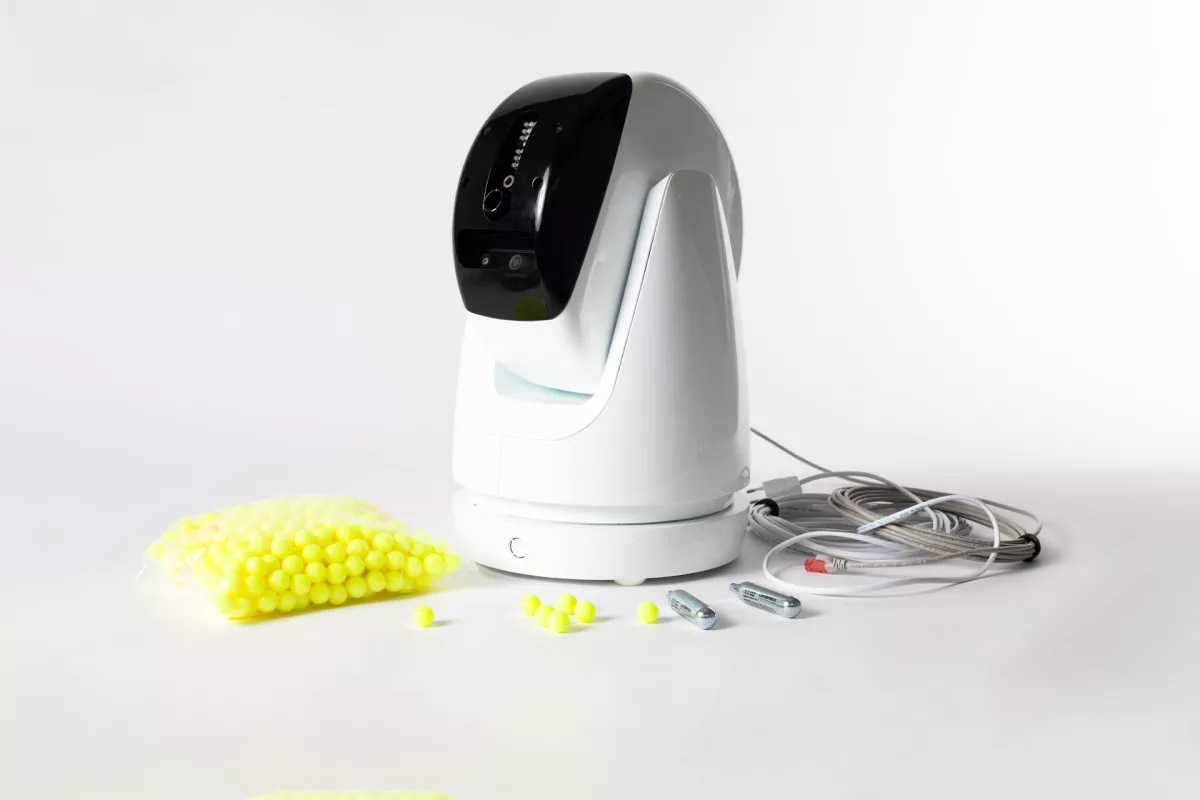
Smart cane for blind customers
Many tech companies are working to make technology more accessible for the blind and visually impaired, and this year’s show featured several smart innovations for the traditional walking cane. Among them is Glidance, a Washington-based startup that introduced Glide, described as an “autonomous, self-guided mobility aid” or robot. Unlike standard smart canes, Glide has a handle attached to a wheeled base for enhanced functionality.
Priced at $1,500 ($1,799 with an annual subscription), the system is currently in soft launch following an initial preorder phase. Equipped with stereo-depth cameras, Glide takes a highly sophisticated approach to mobility. It not only avoids obstacles but also alerts users to doors, elevators, stairs, and curbs. At intersections, it temporarily locks to protect users from oncoming traffic.
Glidance plans to have a finalized product ready for shipping in about a year. The company has raised $1.5 million in pre-seed funding and is working to secure an additional $5 million in seed funding.
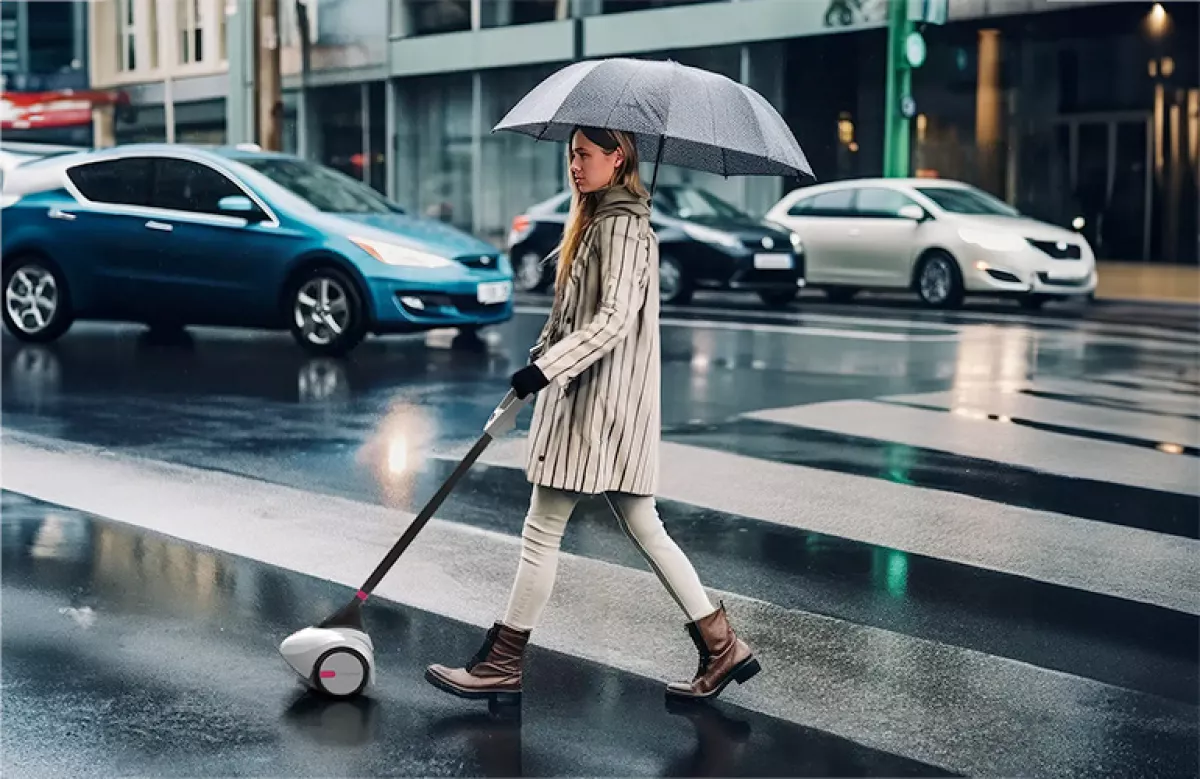
Taxi without steering wheel
Zoox, a Foster City, Calif.-based company, is testing its autonomous robotaxi in San Francisco, offering free rides to employees and guests. The fully electric vehicle, designed without a steering wheel or driver, is monitored remotely, with a "HELP" button connecting passengers to Zoox’s operations center.
The robotaxi features individual climate control, customizable music, and a quiet design to enhance passenger comfort. It operates for up to 16 hours and navigates complex urban environments like construction zones and city streets. Its four-wheel steering and bi-directional capabilities improve pickup and drop-off efficiency, aiming to redefine mobility with a smooth and customizable travel experience.
The Amazon-owned autonomous vehicle company began testing its purpose-built, electric, autonomous robotaxis on public streets in Las Vegas more than a year ago and expects to open up rides to the public in Las Vegas and San Francisco in 2025.
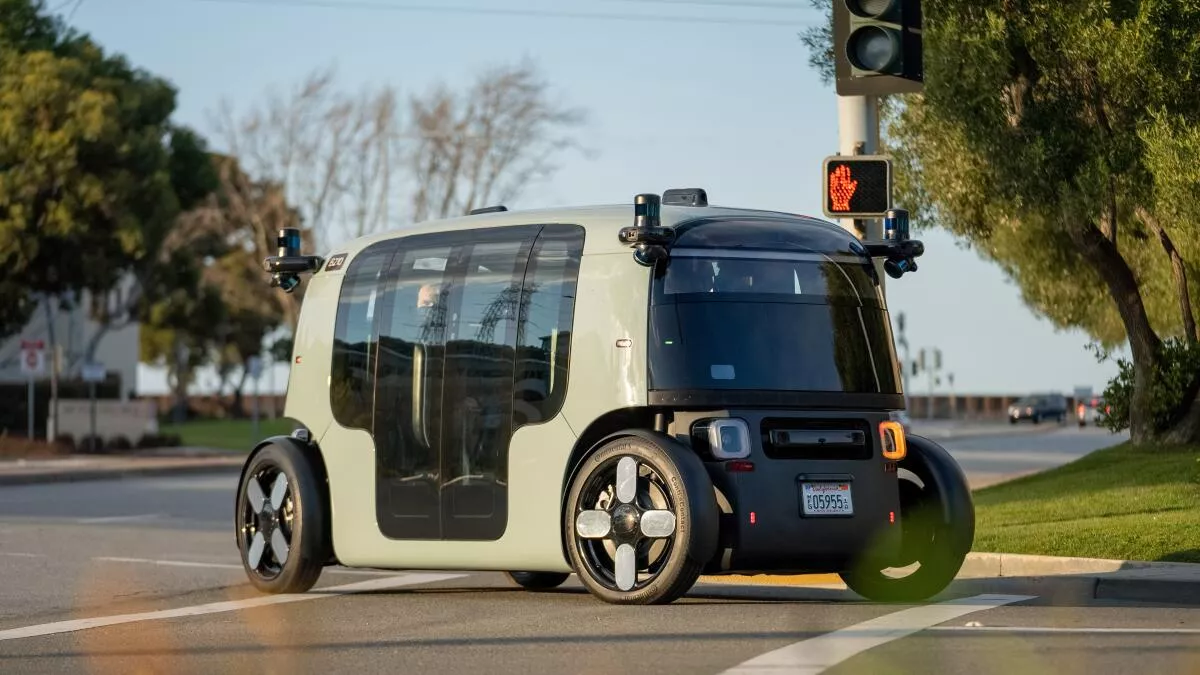
XPENG's flying truck
Flying car concepts are always a highlight at CES, and this year, Chinese automaker XPENG introduced an innovative twist: a combination of a truck and a flying vehicle.
Dubbed the Land Aircraft Carrier, the system consists of a large transport van designed to house a vertical takeoff and landing flying vehicle. This setup allows users to deploy the flying vehicle from any location accessible by the van. The autonomous flying car can accommodate two passengers at a time.
According to Chinese media, XPENG, which also sells conventional vehicles, plans to price the system at approximately $300,000. The company also announced plans to ramp up production across all its vehicle lines in the coming year.
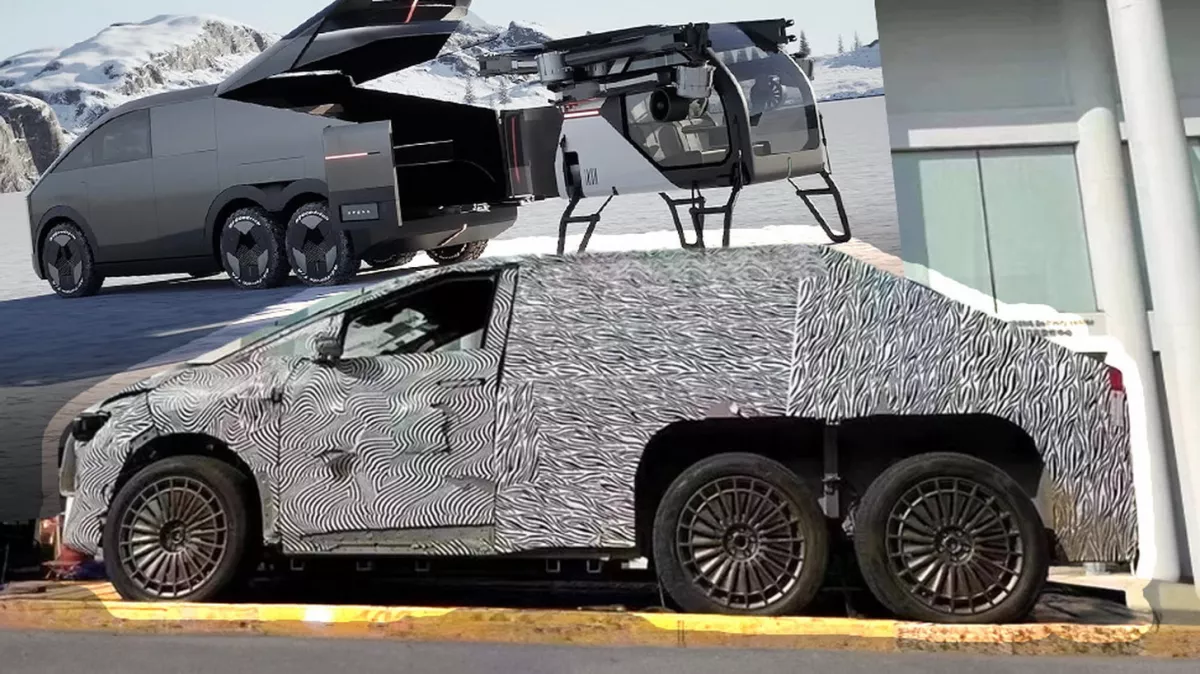
Shocking salty spoon
One of the standout innovations at this year’s CES was the Electric Salt Spoon, developed by Japanese beverage company Kirin Holdings. This device uses electrical stimulation to create a salty taste on your tongue without adding actual salt. The spoon consists of two parts: the spoon itself and a detachable handle that contains the technology. The handle includes menu buttons that let users adjust between four levels of saltiness.
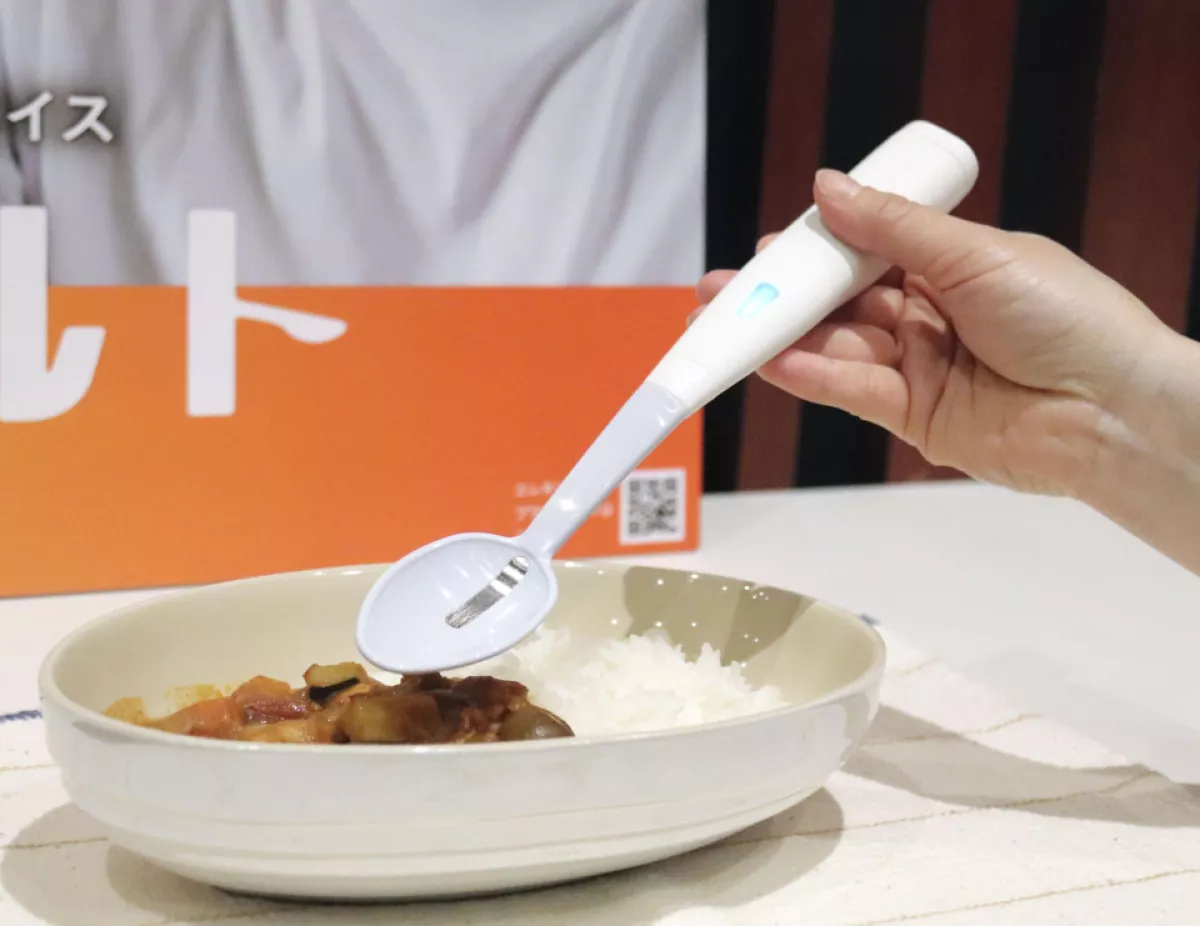
Agricultural vehicles
The KATR, a four-wheeled, all-terrain robot designed to autonomously keep cargo level on uneven terrain while performing versatile tasks, won the Best of Innovation award in the Industrial Equipment and Machinery category at CES. Created by Osaka-based Kubota, the company also markets a wide range of machinery to North America, including tractors, construction equipment, lawn and garden tools, hay tools, and other performance-matched implements.
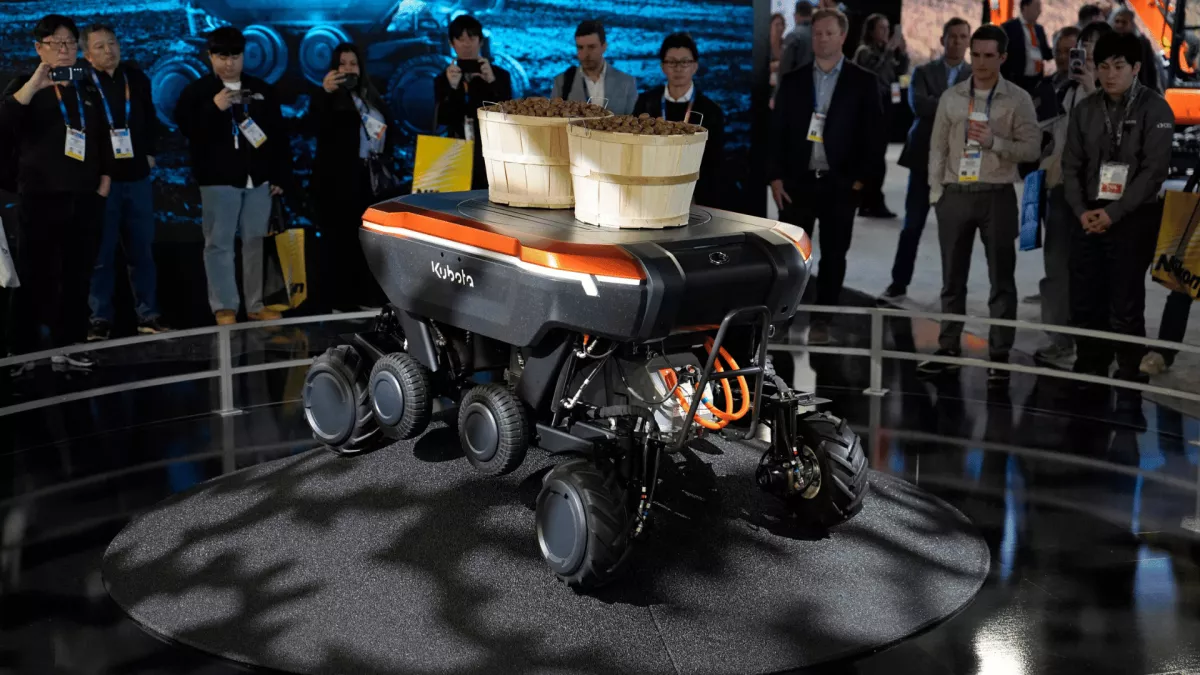
Kubota also showcased the Hydrogen Engine Genset, a clean and quiet alternative to traditional diesel-powered portable generators. Additionally, the Smart Plant Imager and Flash use advanced robotics and hyperspectral imaging to provide real-time data, insights, and analysis on plant health.
By Nazrin Sadigova








